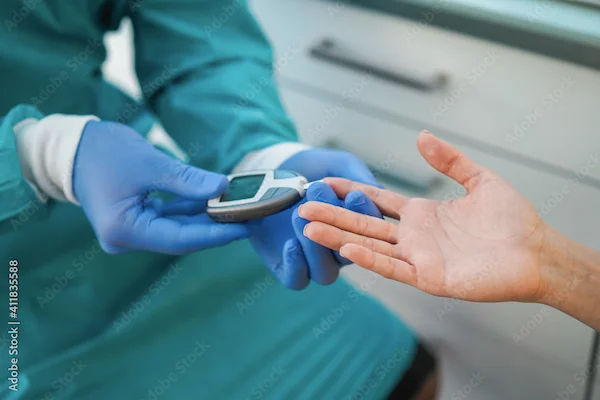Diabetes Mellitus Risk Factors Explained
Discover the key risk factors for diabetes mellitus, including genetics, lifestyle, and diet. Learn how to reduce your risk with practical, expert-backed prevention tips.

Written by Dr. Vasanthasree Nair
Reviewed by Dr. Rohinipriyanka Pondugula MBBS
Last updated on 13th Jan, 2026

Introduction
Living a healthy life starts with understanding the risks that can affect your well-being. One such condition that affects millions worldwide is diabetes mellitus, a chronic disease that impacts how your body processes blood sugar (glucose). While diabetes can be managed effectively, knowing its risk factors can help you take preventive steps early.
In this article, we’ll explore the key risk factors for diabetes mellitus, how they affect your health, and what you can do to lower your chances of developing this condition.
What is Diabetes Mellitus?
Diabetes mellitus is a condition where the body either doesn’t produce enough insulin (a hormone that regulates blood sugar) or cannot use insulin effectively. This leads to high blood sugar levels, which, if left uncontrolled, can cause serious health complications like heart disease, kidney damage, nerve problems, and vision loss.
There are two main types of diabetes:
1. Type 1 Diabetes: An autoimmune condition where the body attacks insulin-producing cells. It usually develops in childhood or young adulthood.
2. Type 2 Diabetes: The more common type, where the body becomes resistant to insulin or doesn’t produce enough. It is often linked to lifestyle factors.
While Type 1 diabetes is mostly genetic, Type 2 diabetes is largely influenced by modifiable risk factors.
Key Risk Factors for Diabetes Mellitus
These are the key factors for diabetes mellitus:
1. Family History & Genetics
If your parents or siblings have diabetes, your risk increases. Genetics play a role in how your body processes insulin.
2. Being Overweight or Obese
Excess body fat, especially around the abdomen, makes it harder for insulin to work effectively. Losing even 5-10% of body weight can significantly reduce diabetes risk.
3. Lack of Physical Activity
A sedentary lifestyle slows down metabolism and increases insulin resistance. Regular exercise (30 minutes a day) helps maintain healthy blood sugar levels.
4. Unhealthy Diet
A diet high in sugary drinks, processed foods, and unhealthy fats contributes to weight gain and insulin resistance. Instead, focus on:
Whole grains
Fresh fruits & vegetables
Lean proteins (fish, chicken, beans)
Healthy fats (nuts, olive oil)
5. Age (Over 45 Years)
As we age, the risk of Type 2 diabetes increases due to reduced physical activity, muscle loss, and slower metabolism.
6. High Blood Pressure & Cholesterol
These conditions strain the body’s ability to regulate blood sugar and increase diabetes risk.
7. Gestational Diabetes (During Pregnancy)
Women who develop diabetes during pregnancy have a higher risk of Type 2 diabetes later in life. Their children may also be at risk.
8. Polycystic Ovary Syndrome (PCOS)
Women with PCOS often have insulin resistance, increasing their diabetes risk.
9. Smoking & Excessive Alcohol
Both habits worsen insulin resistance and contribute to weight gain.
Get Your Symptoms Checked By An Endocrinologist
10. Ethnicity
People of South Asian, African, Hispanic, and Native American descent have a higher genetic predisposition to diabetes.
How to Lower Your Risk of Diabetes
The good news? Type 2 diabetes is largely preventable with healthy lifestyle choices! Here’s what you can do:
Maintain a Healthy Weight: Even small weight loss helps.
Stay Active: Walk, cycle, or do yoga daily.
Eat a Balanced Diet: Avoid sugary and processed foods.
Get Regular Check-ups: Monitor blood sugar, cholesterol, and blood pressure.
Quit Smoking & Limit Alcohol: Reduces insulin resistance.
Manage Stress: High stress raises blood sugar levels.
When to See a Doctor?
If you experience symptoms like:
Frequent urination
Excessive thirst
Unexplained weight loss
Fatigue
Blurred vision
It’s important to get tested. Early detection can prevent complications.
Apollo 24|7 offers diabetes screening tests and expert consultations to help you monitor and manage your health effectively.
Conclusion
Understanding diabetes risk factors empowers you to take control of your health. By making simple lifestyle changes, you can significantly reduce your chances of developing diabetes and lead a healthier, happier life.
If you have concerns about diabetes, don’t hesitate to reach out to a healthcare professional.
Would you like personalized advice? Schedule a consultation with Apollo 24|7 today!
Get Your Symptoms Checked By An Endocrinologist
Get Your Symptoms Checked By An Endocrinologist

Dr. Krishna G Seshadri
Endocrinologist
22 Years • MBBS, AB certified
Chennai
Apollo Hospitals Greams Road, Chennai
(75+ Patients)

Dr. Narayanan N K
Endocrinologist
16 Years • MRCP (Internal Medicine), SCE (Diabetology & Endocrinology), MRCP (Diabetology & Endocrinology), CCT, Former Research Associate, Cambridge University, Adjunct Professor, MGR Medical University, Tamil Nadu
Chennai
Apollo Hospitals Greams Road, Chennai
(1050+ Patients)

Dr. Shiva Madan
Endocrinologist
10 Years • MBBS , MD (General medicine) , DM (Endocrinology)
Bikaner
Sushma diabetes and Endocrine center, Bikaner

Dr. Nilotpal Mitra
General Physician/ Internal Medicine Specialist
20 Years • MBBS, PGDGM ( Geriatric Medicine), ACMDC (an Advance course in Diabetes and cardiovascular diseases from PHFI and WHF )
Kolkata
MCR SUPER SPECIALITY POLY CLINIC & PATHOLOGY, Kolkata

Dr. B Rachana
General Physician/ Internal Medicine Specialist
8 Years • MBBS, Fellowship in Diabetes, Fellowship in Applied Nutrition,CCEBDM(Diabetes)
Bengaluru
Apollo Clinic, JP nagar, Bengaluru




_0.webp)